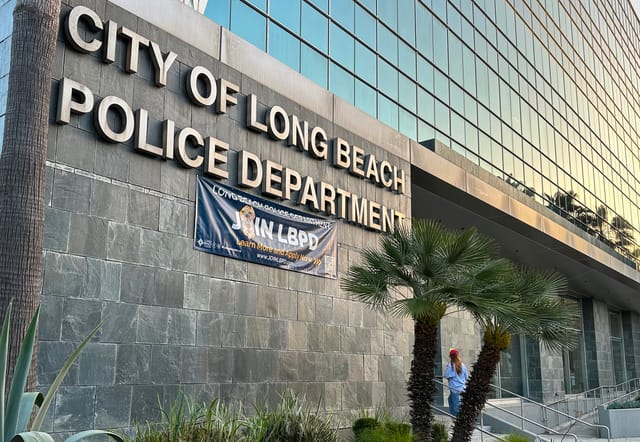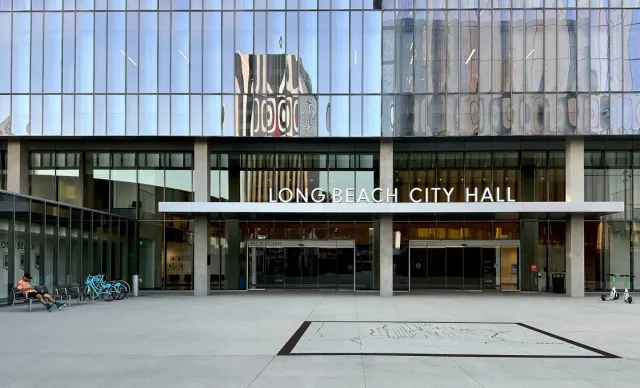Q&A: Long Beach must be ready to foster future Paralympians in 2028 and beyond, mayor says
Mayor Rex Richardson talks about his visit to the Paris Games and what Long Beach's participation in the 2028 Olympics will mean for the city.
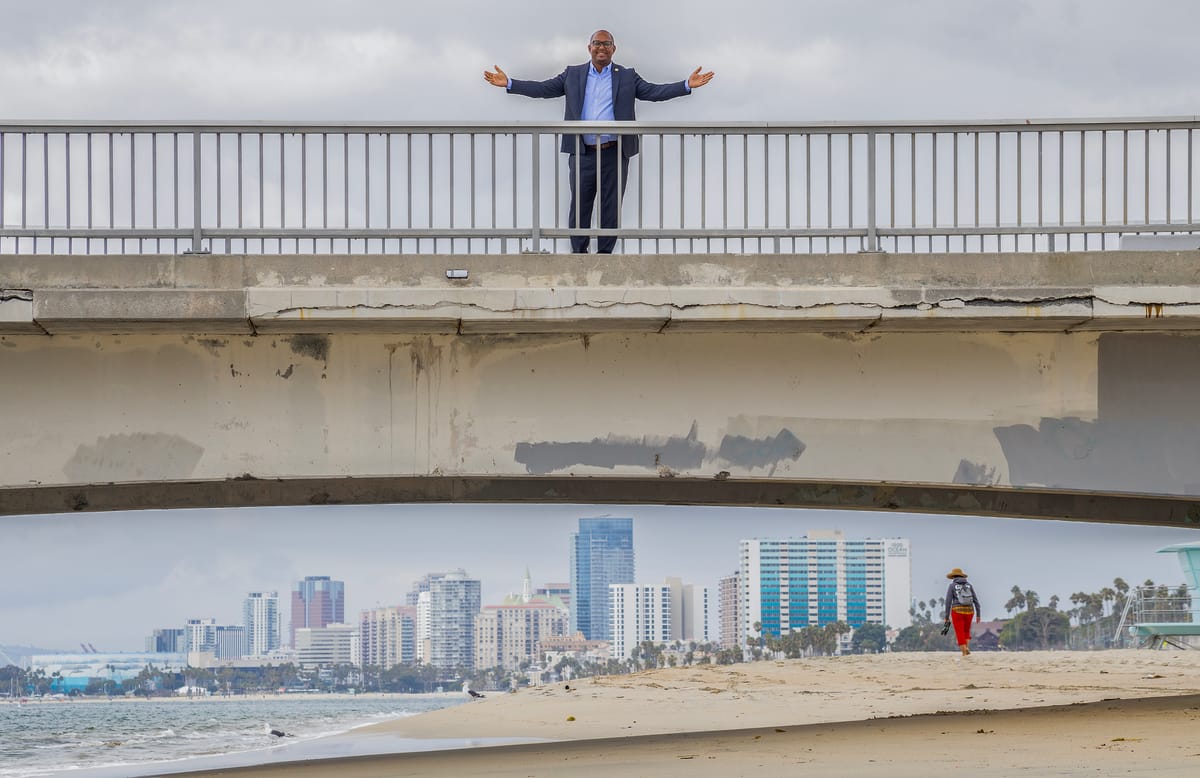
When it comes to the summer Olympics, Long Beach has a rich history.
The city hosted numerous events when the Games came to Los Angeles in 1932 and again in 1984. In addition to playing host, the city is regularly represented by athletes. In fact, Wilson High alumni have competed in every summer Olympics since 1952.
Now, the city is gearing up to host once again. To learn the ropes ahead of the 2028 Olympics, officials from across Los Angeles County, including from Long Beach, traveled across the pond to experience the Paris Games and learn all they could from French officials.
Long Beach Mayor Rex Richardson sat down with Watchdog reporter Brandon Richardson in his city hall office on Monday, Sept. 9 to chat about his experience and how it will inform the city’s role in the next summer Games.
This interview has been edited for length and clarity.
Brandon Richardson: Before we get into 2028, can you tell me a little bit about your experience at the Paris Olympics?
Rex Richardson: I had never been to the Olympics before and I was curious about the scope, the scale of what we're getting ourselves into. We organized a delegation — the port, myself, the police chief is part of the LA28 security team. I handled mostly dignitary stuff. It was a really tight trip. I was only there four days, but it was a really busy four days.
We had a big Long Beach presence in Paris — four folks in water polo, a lot of Long Beach families at the team USA house. You had [Wilson High School alumni] Lashinda Demus finally receive her gold medal in front of the Eiffel Tower. I was able to celebrate with her and her mom. LaTanya Sheffield from Long Beach State — she's a big deal. I visited the athlete’s village and people were buzzing around her.
And so to be able to get out there, tour the village, see the venues, see what is required, was definitely eye opening. But I feel pretty confident that Long Beach will be one of the premier venues for LA28. A lot of the events we have are very similar: they require water. The teams, the countries that really have an affinity for those types of events, they're going to set up shop here in Long Beach. It's great for us.
So we're going to … create some opportunities for countries to really set up shop here. I was able to visit the Team USA house in Paris, for example — that's where all the fans, all the teammates, they all sort of own that space and they get hotels around it. We're going to be able to do some things like that in 2028. Let's say the Queen Mary plays a venue for a country — UK House or something like that. A lot of [our] hotels may be one country that is centered around [its] house. That's an opportunity we have.
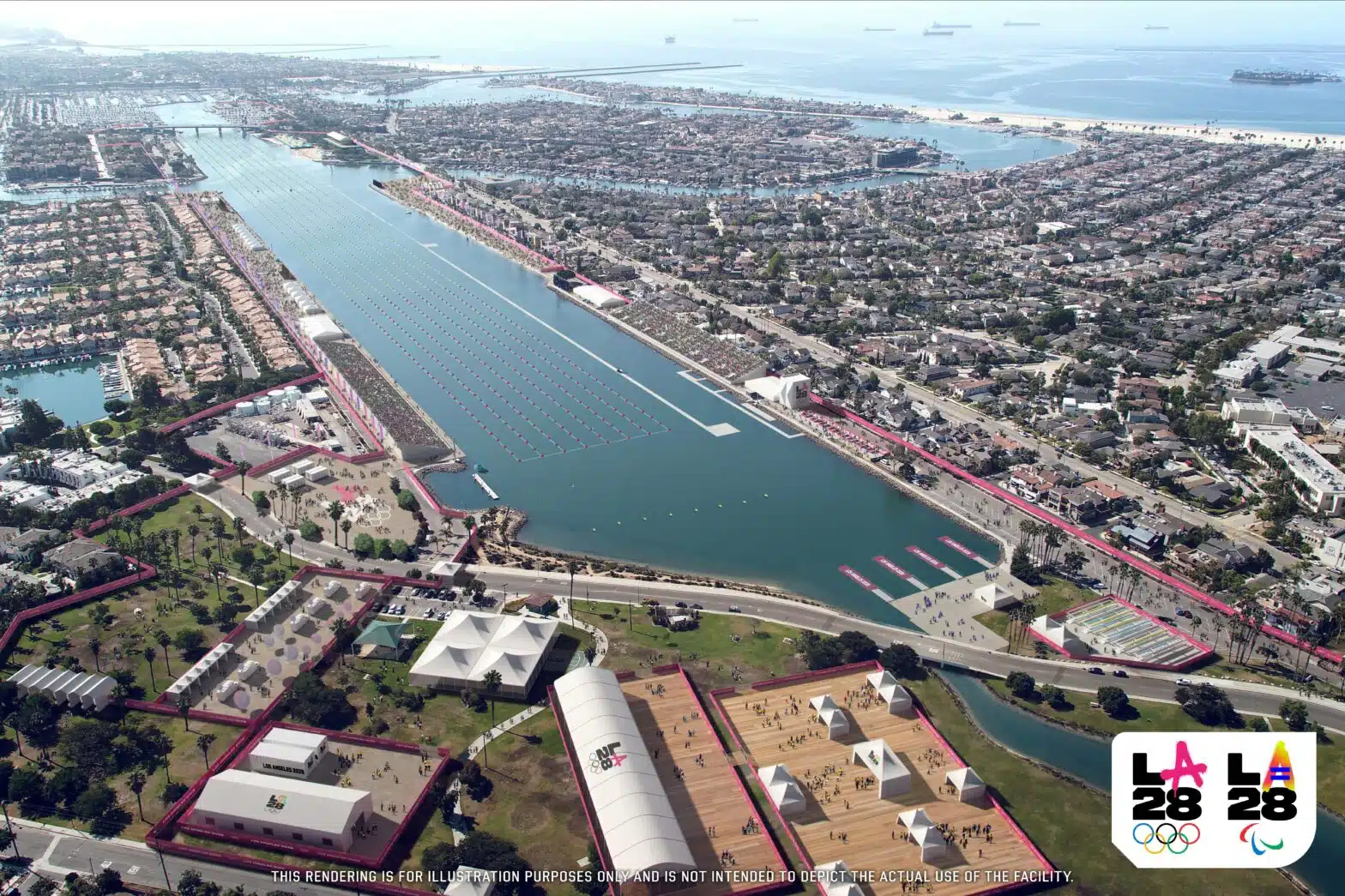
We learned a lot. Like, to be ready for 2028, we really [need] to be ready in 2027 because the event starts about a year out. You’ve got to be able to test run things. You’ve got to be able to make sure you have your plan B, your plan C, in terms of logistics. There's certainly a lot we’ve got to do and we should be thinking about this as three years out, not four years out.
BR: You mentioned the scope. Have you ever been to anything like this?
RR: We’ve had major sporting events before. We've had hundreds of thousands of people in Downtown Long Beach. But imagine multiple grand prix all across Southern California, different venues, at the same time. Imagine that. That's what it is. We really want Long Beach to be self-contained. Mobility is going to be key. How people get from one sports park to the next.
We spent a lot of time talking about what the car-free Olympics could look like. And I think it could work here in Long Beach. If you can take the A Line and get to Long Beach, then we can help establish [bus] circuits to get folks from one venue to the next. You don't have to have a car in order to enjoy LA28. We didn't have to have a car to enjoy Paris.
BR: While you were over there, what events did you actually catch? Did you catch any of the really obscure ones?
RR: I went to water polo, cheered on our guys — it was the semi-final and I had a meet-and-greet with them after. I went to the men's basketball final. I had a great view of Steph Curry sinking them against France in France. That house was nuts.
I went and checked out Para swimming because we'll be hosting Para swim, one of the Paralympic events that has been announced. The rest have not been announced yet. So we particularly wanted to go see Para swim — there's a lot of meddling, a lot of contests, and I had a chance to meet some of the gold medalists from the United States. It's pretty incredible.
BR: Speaking of the events. Long Beach already is set to host the most outside of LA proper, but there are still a few Olympic events and most of the Paralympic events that have not been announced. Are we anticipating a few more?
RR: We’ll be a major aquatics center. We know that we also will be a major Paralympic center. The Paralympics is a very distinct event from the Olympics. The Paralympics is great in its own right. You speak with a Paralympian, they're very clear: They don’t want to be an Olympian. They're Paralympians. And so each event has to be treated with care and respect. There are [future] Paralympians who don't know they’re Paralympians because they haven't gotten their disability yet.
There are people who have children who were born with a disability and are going to be inspired in Long Beach. When they watch the Paralympics, they’re going to be inspired and they're going to say, “You know what, I want that future for my child.” And we have to be ready to have the youth programs available. When that person says, “I'm ready,” we need to be ready to get that young person into those sports. Because that’s what happens: People get inspired by seeing folks with disabilities demonstrate a high level of pride and athleticism. I met with the International Paralympic Committee and had a full conversation about the social impact.
We need to be able to take full advantage of that level of inspiration. Some of the things we need to be doing now is a real assessment about what opportunities and resources and sports are available for people with disabilities today. What capacity is needed? What is right outside of our city border, perhaps in LA or in Orange County, that needs to be a part of what we're doing in Long Beach. Because the Paralympics are coming, those are questions we need to ask right now. Our infrastructure, in many ways, is more advanced than some of those much older European cities, but the American Disability Act is a minimum standard. How can we be accessibility forward? What does it look like for us to intentionally prepare for Paralympics in such a way that we show the world what the next level of accessibility looks like?
This is our third time hosting the Olympics. Our first time to host the Paralympics. What is the legacy we have to show for hosting the Olympics two times? Maybe Marine Stadium? But the kind of legacy we can have by hosting the Olympics and Paralympics is much broader in terms of accessibility and infrastructure. How can we be smart, strategic, about leaving a legacy in place to make the city more accessible and cleaner and safer and all of those things?
BR: Why was it important for yourself and the other delegates to be there, to show face, ahead of what's in the coming four years?
RR: There are no more [summer] Olympics between now and then. We’re going to be opening up our doors to the world. Some people remember 1984, but this is going to be very different. The footprint Long Beach will have will be significantly larger than ’84 and ’32 combined. And we’ll be hosting a whole set of events that we haven't hosted before. We have to take this very seriously and I can't underscore the emphasis we need to place on preparedness — from public safety, transportation and logistics to quality of life.
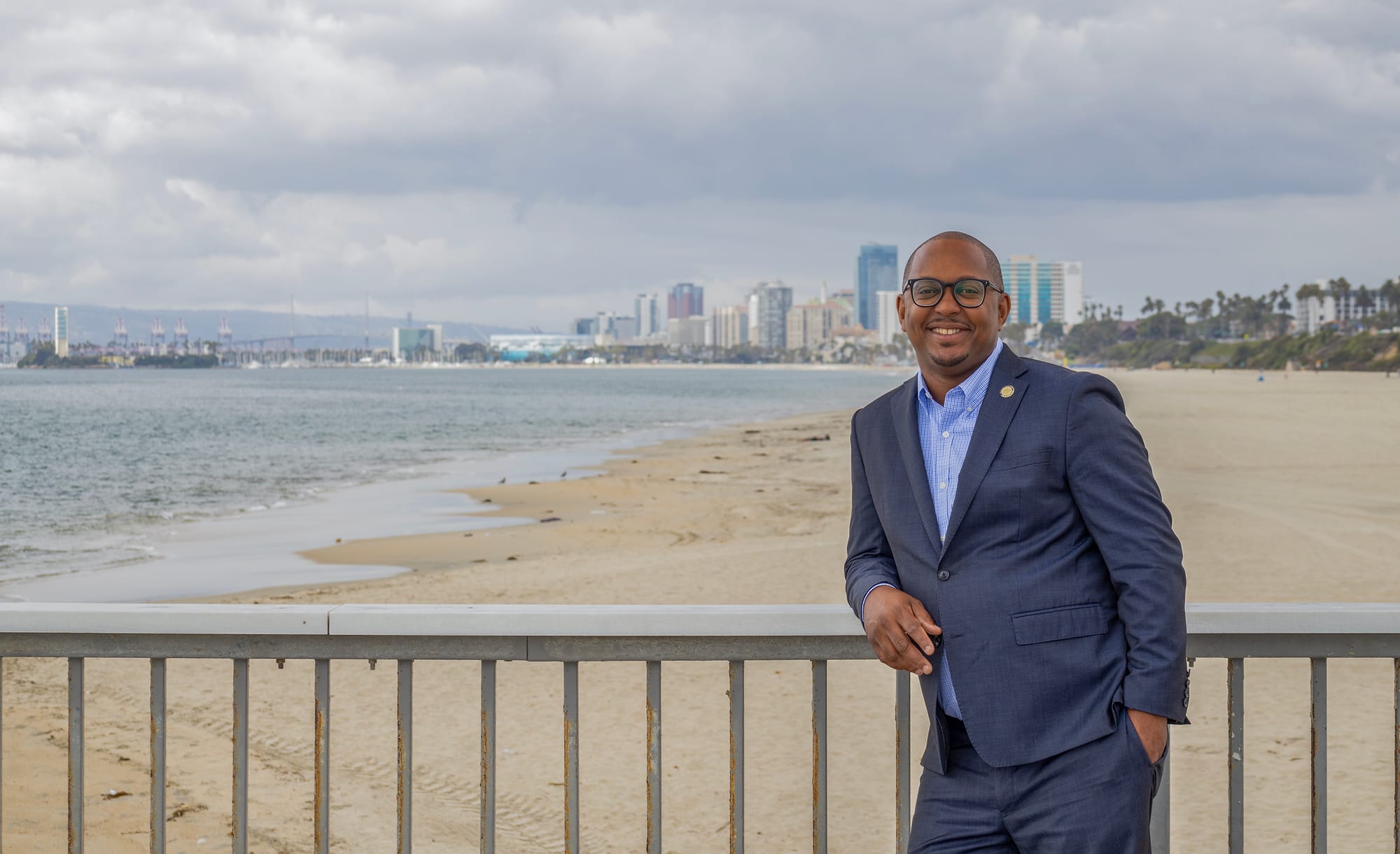
And there’s only so much you can do from home. We needed to make sure our special events team was able to go and have a look. Make sure our city manager's office was able to go have a look — key city departments like refuse and public works. We had the people there who are gonna actually be … handling the logistics, the public safety, the sanitation, all of that. That's who we sent out there to take a look at what operations are, meet with their operations people. I think we're pretty confident based on those conversations that we're going to be able to demonstrate that Long Beach is a world class city. We can handle this.
BR: Any city would face logistical issues hosting hundreds of thousands, if not millions, of people over the weeks of the Olympic and Paralympic Games. Can you talk a little bit about those logistical issues — refuse, public safety, health. What is the city really focused on?
RR: We have to do it all. I think getting people to and from Long Beach will be the big question and we have to participate with Metro, with the region, in answering that question. So I'll be engaging in that conversation with Metro about the A line — what enhancements need to be made between now and then to increase capacity, to increase service, to make sure it's a viable transportation method to get people to and from Long Beach. We also know there's a large conversation around mobility. There's going to need to be a lot of buses. We're gonna need to have some circuits throughout the city — perhaps from the A Line to Marine Stadium. There may be logistics around parking for some of the teams. They may have to park on a college campus and shuttle to and from the venues.
It will require being thoughtful and we certainly have enough time to figure that out. We met with Paris about all the things they did around their water quality, around waste. They did things like increase [the number of] waste bins and service to just collect trash off the street. They increased service during that period of time because there was obviously more pressure on the system. So those are some of the things we're gonna have to look at — what those increased services look like.
BR: And the same with public safety?
RR: What was really clear to me in Paris is there were national military, national police and security from other countries. There is gonna have to be some national support. This is not hosted by just a city, right? This is the American Games. So there’s definitely going to have to be support from state and federal agencies.
BR: Locally, homelessness and crime are two of the top issues that residents talk about. Has the city set some goals on where you want to be before the Olympics?
RR: Over the course of the past 18 months I've been in office, we declared a local state of emergency [on homelessness], we increased our outreach, increased shelter space. There needs to be much more housing, there needs to be much more outreach, much more services. And there needs to be more participation from state, county and federal [agencies] in order to do that because there are no shortcuts on homelessness. It's just reality. You can't sweep all the homeless to the river or into adjacent communities. That isn't a real solution.
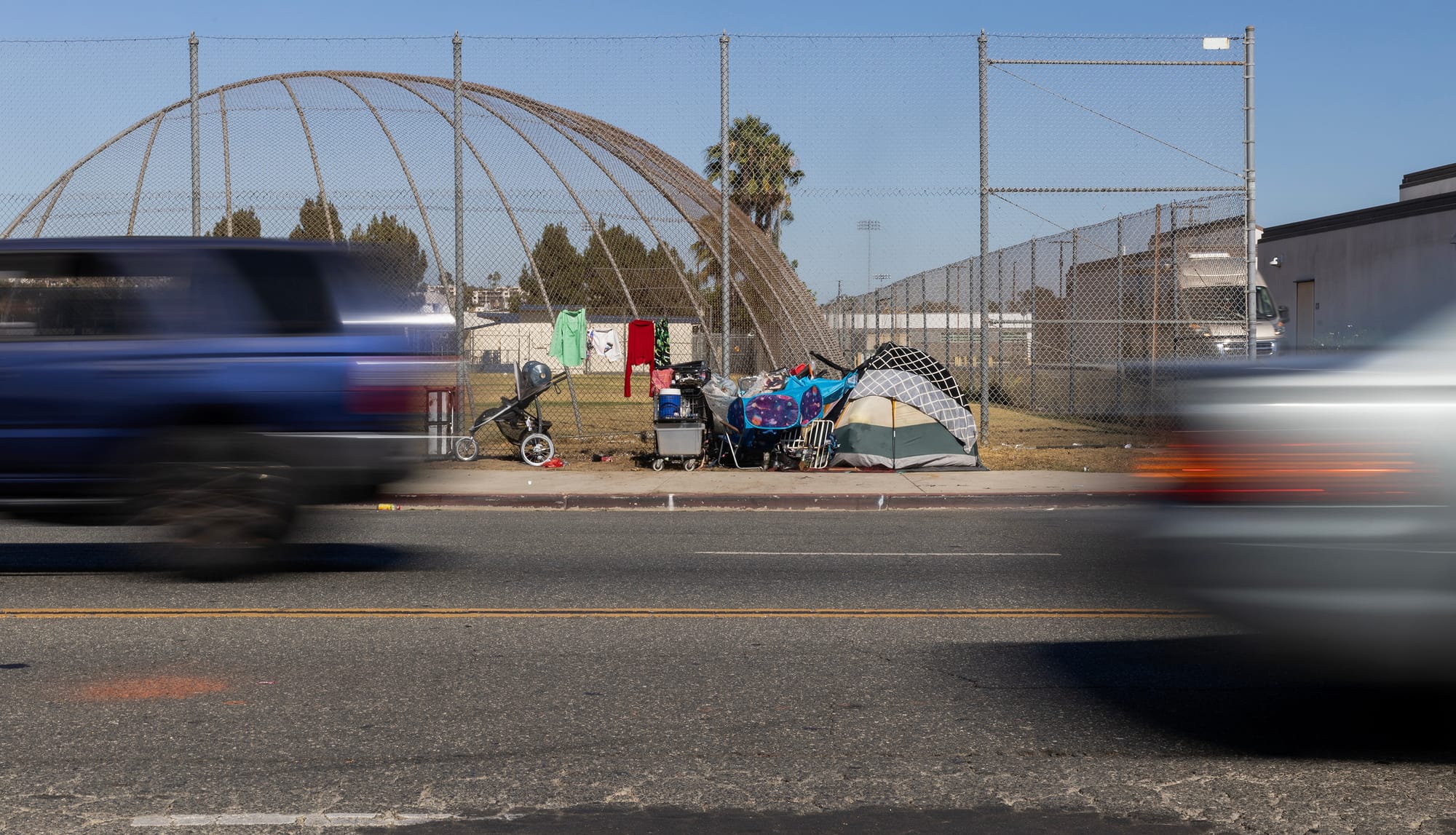
There are some good things that have happened recently. Proposition 1 [was approved by voters] — that was the governor's measure that's gonna allow for billions to go into permanent supportive housing. We need a little bit more support. And then we need to really, locally, invest in not just homeless outreach, but housing and services. That's why I'm paying a lot of attention to LA County Measure A — the “Bold New Way” — because that is the most comprehensive step the county can do, particularly four years ahead of the Olympics, to address not just homeless services, but to build the housing that we need to keep people from slipping into homelessness. The Olympic Games are regional. The homeless challenge is regional. And we need regional solutions.
I would also say it was really eye opening when I went to Paris. There was graffiti. There were individuals experiencing homelessness. Every major city deals with the same chronic challenges. There was an encampment right next to my hotel and I said “hello” to the gentlemen every single day. To me, a successful Olympic Games does not mean that there are no individuals experiencing homelessness.
There has to be something authentic about the city, about the LA region. Sure, we're dealing with housing challenges now, but what is our legacy during that Olympics? [That’s] the bigger question. How are we going to build housing between now and then? How are we going to build shelter? How are we going to demonstrate compassion between now and then? There is real opportunity for us to galvanize our communities, to do as much as we can between now and then. But in reality, there will still be homelessness in four years when the Olympics come. There will still be a housing shortage.
BR: There are numerous projects the city would like to get done before the Olympics. Pools, upgrading parks, the pier. Is the pier still on the books?
RR: It’s not fully funded but there's some money toward the pier. The plan for the pier is public-private partnerships to add shops and eateries and all of those things. That's a big, long-term vision.
Long Beach has great conditions for many of the events we're having: artistic swim, Para swim, rowing, sailing, canoe sprint, marathon, swimming, triathlon, handball, water polo. Nine have been announced. At the end of the day, we're going to get between 15 and 17 events.
BR: The city is projecting just over a $60 million deficit over the next five years, which takes us all the way up to and beyond the Olympics. Are you confident Elevate ’28, the city’s five-year infrastructure investment plan, will be completed by the Games?
RR: The deficit is on services. And $61 million between now and 2030 — it's not that big if we're smart. There are some things we need to do. For example, we're putting forward a measure to close some loopholes. We can't afford to provide loopholes to power plants in our city that have been in place for a long time. That's $15 million we've just been giving away every single year. LA County Proposition A — that will cancel out the former Prop. H homelessness measure, which will [allow us to bring in more Measure A money]. That's an additional $24.5 million.
Elevate ’28 is a capital investment plan largely based on one-time funds. Originally it was $500 million and then we found an additional $220 million to put in. And in this budget, we found another $200 million, so now we're up to almost a billion dollars for infrastructure independent of services. In that $920 million, you're gonna see everything from lots of streets being improved, lights, sidewalks, mobility, curb and gutter — infrastructure makes a big difference. Plus, water-quality improvements, park improvements. This is the biggest infrastructure plan we've ever done and it's all you know outlined at lbelevate28.com, which allows a level of transparency that we've never had on infrastructure projects. These projects will get done.
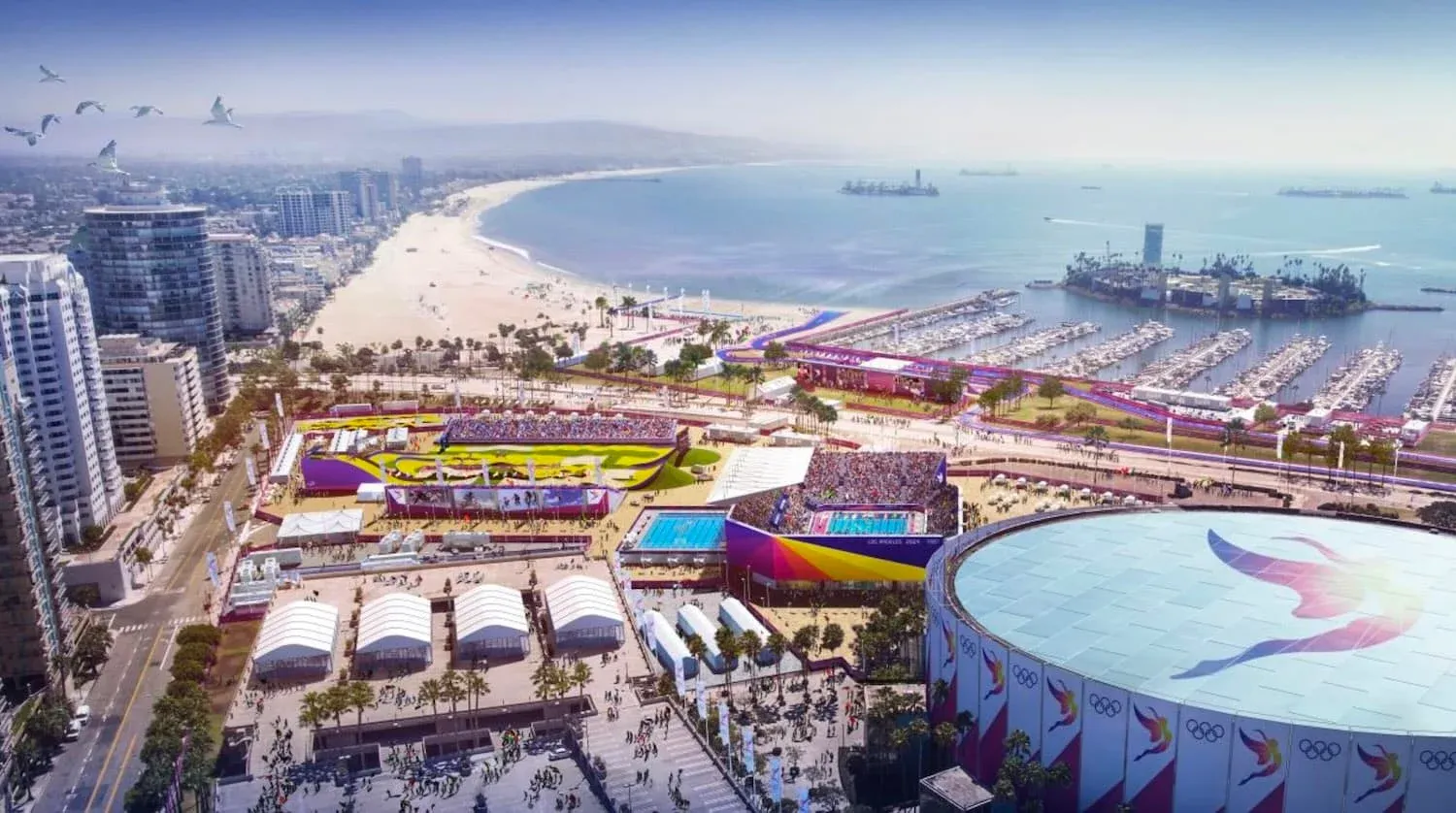
BR: And that $920 million has been identified?
RR: Already identified. And there will be additional opportunities that come up between now and then [for federal and state funding]. These are investments into our public facilities, our infrastructure, not temporary facilities. Other Olympics have a reputation of building up these temporary venues and using their public dollars on that.
BR: Or permanent venues that then get abandoned.
RR: Exactly. What we're doing is investing in our own infrastructure for the use of the public good.
BR: At the same time, though, there will be some temporary venues, right?
RR: Those will be similar to the Olympic trials in Long Beach for swim [in 2004]. Some of this stuff is so big it has to be temporary.
BR: And funding for that?
RR: LA28 builds their own venues. We don't pay for that. We are the landlord. The tickets, the sponsorships, that's how they pay for [venue construction].
BR: Amid the Venice Beach controversy during the closing ceremony, a New York Times critic slammed the Long Beach spot as “beach-party entertainment.” But most of our events are water based. We are Long Beach. We have an actual long beach. So it seems like that's something we'd actually lean into.
RR: The venues themselves will be programmed by LA28. Outside of those areas, we have the ability to program. We have 7.5 miles of beach, nine miles of coastline. When we went to Paris, they had fan zones. We anticipate doing the same, where you have the official venues, but also some city-sponsored areas that could be free or low cost for residents, with activations, screens.
And let's be honest, this is an opportunity for Long Beach to come out of LA’s shadow. We are, in many ways, the waterfront of Southern California and the LA region. When people watch the news, they see the Queen Mary out there. We have a beautiful waterfront and this is an opportunity for us to show it off a little bit. What legacy do we want to have moving forward? I think people from around the world are going to have a great time in Long Beach. They're going to know a little bit about our music, our culture, our food, our waterfront and our style. And in order for that to happen, we're gonna have to activate it. We're gonna have to have some beach parties.

We need your support.
Subcribe to the Watchdog today.
The Long Beach Watchdog is owned by journalists, and paid for by readers like you. If independent, local reporting like the story you just read is important to you, support our work by becoming a subscriber.



